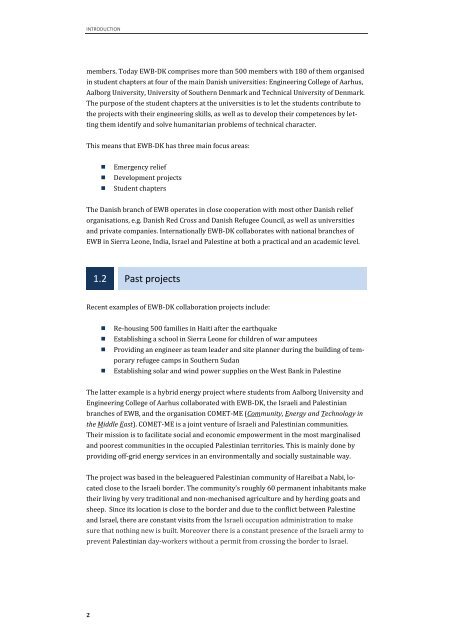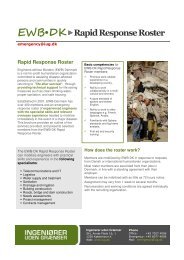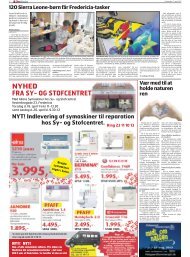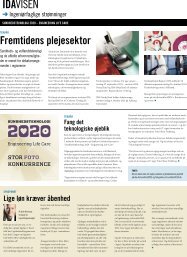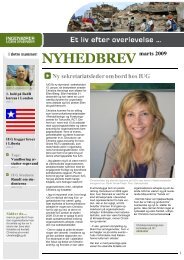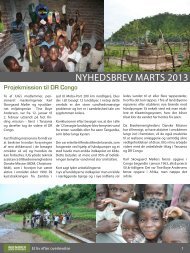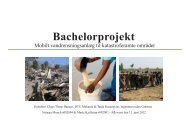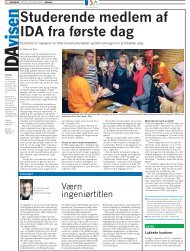Create successful ePaper yourself
Turn your PDF publications into a flip-book with our unique Google optimized e-Paper software.
INTRODUCTION<br />
members. Today EWB-DK comprises more than 500 members with 180 of them organised<br />
in student chapters at four of the main Danish universities: Engineering College of Aarhus,<br />
Aalborg University, University of Southern Denmark and Technical University of Denmark.<br />
The purpose of the student chapters at the universities is to let the students contribute to<br />
the projects with their engineering skills, as well as to develop their competences by let-<br />
ting them identify and solve humanitarian problems of technical character.<br />
This means that EWB-DK has three main focus areas:<br />
2<br />
� Emergency relief<br />
� Development projects<br />
� Student chapters<br />
The Danish branch of EWB operates in close cooperation with most other Danish relief<br />
organisations, e.g. Danish Red Cross and Danish Refugee Council, as well as universities<br />
and private companies. Internationally EWB-DK collaborates with national branches of<br />
EWB in Sierra Leone, India, Israel and Palestine at both a practical and an academic level.<br />
1.2 Past projects<br />
Recent examples of EWB-DK collaboration projects include:<br />
� Re-hou<strong>sin</strong>g 500 families in Haiti after the earthquake<br />
� Establishing a school in Sierra Leone for children of war amputees<br />
� Providing an engineer as team leader and site planner during the building of tem-<br />
porary refugee camps in Southern Sudan<br />
� Establishing solar and wind power supplies on the West Bank in Palestine<br />
The latter example is a hybrid energy project where students from Aalborg University and<br />
Engineering College of Aarhus collaborated with EWB-DK, the Israeli and Palestinian<br />
branches of EWB, and the organisation COMET-ME (Community, Energy and Technology in<br />
the Middle East). COMET-ME is a joint venture of Israeli and Palestinian communities.<br />
Their mission is to facilitate social and economic empowerment in the most marginalised<br />
and poorest communities in the occupied Palestinian territories. This is mainly done by<br />
providing off-grid energy services in an environmentally and socially sustainable way.<br />
The project was based in the beleaguered Palestinian community of Hareibat a Nabi, lo-<br />
cated close to the Israeli border. The community’s roughly 60 permanent inhabitants make<br />
their living by very traditional and non-mechanised agriculture and by herding goats and<br />
sheep. Since its location is close to the border and due to the conflict between Palestine<br />
and Israel, there are constant visits from the Israeli occupation administration to make<br />
sure that nothing new is built. Moreover there is a constant presence of the Israeli army to<br />
prevent Palestinian day-workers without a permit from cros<strong>sin</strong>g the border to Israel.


